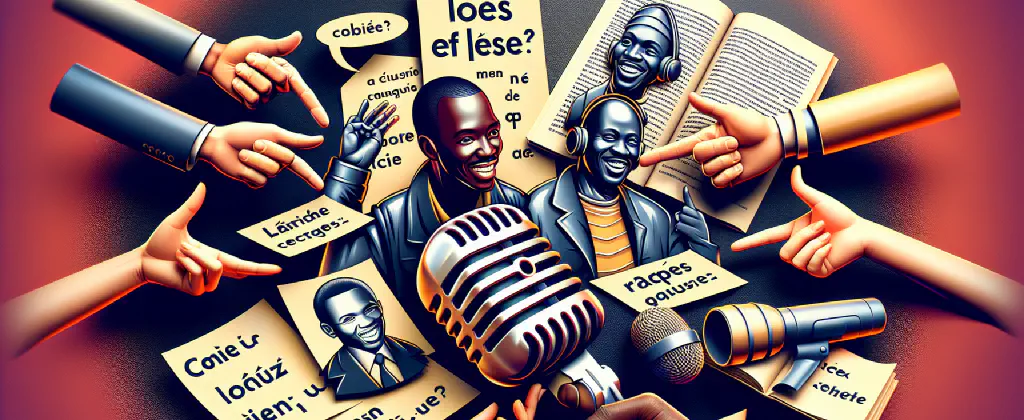18. December 2023
How Africans are changing French, one joke, rap and book at a time

French, often considered the language of love and culture, is evolving thanks to the influence of African cultures. From the introduction of new words and expressions to the rise of African music genres in France, Africans are leaving their mark on the French language. In this article, we explore the impact of Africans on French, the rise of nouchi and other African languages in popular culture, and the dynamic nature of language exchange between non-native and native speakers.
The Rise of Nouchi and African Music Genres in France
Nouchi, an Ivorian argot, has gained popularity in Côte d’Ivoire and found its way to France through two popular music genres, “Zouglou” and “Coupé-Décalé.” These music genres, which originated in Côte d’Ivoire in the 1990s and 2000s, respectively, played a significant role in introducing nouchi to the French culture. In fact, some nouchi words have made their way into the prestigious Larousse dictionary in 2019, further solidifying the influence of African languages in the French lexicon.
Language Learning in Africa: Embracing Diversity and Positivity
Learning French in Africa is a unique experience due to the multicultural and multilingual environments. For many Africans, French is not their first language but rather their third, fourth, or even fifth language. The positivity and encouragement they receive while learning French in this context is unlike the experiences of non-native speakers in France itself. Africans are more resilient to strong accents and broken grammar, fostering an inclusive and joyful language learning environment.
The Power of Global English and the Ease of Communication
English, often considered a global lingua franca, has a unique feature that allows for effective communication: the ability to handle strong accents and broken grammar. Non-native speakers of English are more adaptable and resilient to variations in pronunciation and grammar, making it easier for them to understand and be understood. This advantage becomes apparent in multicultural environments where individuals from different countries can communicate effectively using simplified English.
The Challenges of Communication Across Languages and Accents
While English may be a successful lingua franca in many contexts, the challenges of understanding strong accents and communicating across languages are not to be overlooked. People’s ability to comprehend accents can vary greatly, and sometimes even fluent language learners struggle to understand native speakers with strong accents. It is a constant reminder of the complexities of language and the importance of diversity and inclusive communication.
A Linguistic World: Breaking Language Barriers
Language barriers can be broken when individuals embrace the diversity of languages and cultures. In one traveler’s experience, he found it easier to understand an Italian ski instructor who spoke English than native French speakers. This encounter exemplifies the idea that we are all citizens of the world, connected by a shared desire to communicate and understand one another. It challenges the notion of linguistic divisions and reminds us of the power of language as a bridge between cultures.
The Evolution of French and its Role in Global Communication
French, once the dominant language in diplomacy and international affairs, has undergone a transformation thanks to the influence of African cultures. As Africans bring their languages and expressions into the French language, it becomes more dynamic and inclusive. The flexibility of French sentence structure and the introduction of new words and expressions ensure that the language continues to evolve.
The Impact of Africans on French: Celebrating Cultural Exchange
The influence of Africans on French goes beyond just language. African music genres have found popularity in France, introducing French audiences to new rhythms and beats. African literature is also gaining recognition, with African authors providing fresh perspectives and narratives. Africans are making their mark through humor, rap, and literature, contributing to the cultural diversity of the French language.
As language continues to evolve and adapt, Africans are playing a crucial role in shaping the future of French. Through music, literature, humor, and everyday conversations, Africans are enriching the French language with their unique expressions and perspectives. This cultural exchange not only strengthens the bond between Africa and France but also fosters a more inclusive, diverse, and vibrant linguistic landscape for everyone to enjoy.
Source: https://www.nytimes.com/2023/12/12/world/africa/africa-french-language.html